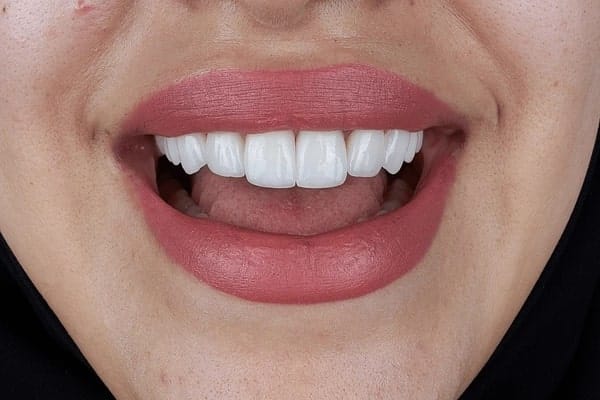Porcelain veneers are an incredibly popular cosmetic dental solution, renowned for their ability to enhance the appearance of your smile by addressing imperfections like discolouration, chips, and gaps. However, when opting for such a procedure, understanding how long your porcelain veneers will last is crucial to managing expectations and ensuring you care for them properly. In this blog, we’ll explore the lifespan of porcelain veneers, factors influencing their longevity, and how you can maintain them for a long-lasting, flawless smile.
What Are Porcelain Veneers?
Porcelain veneers are thin shells of dental ceramic that are custom-crafted to cover the front surface of your teeth. They are bonded to your teeth to improve their appearance, offering a more aesthetic, natural-looking smile. This cosmetic procedure is ideal for those who have stained, chipped, or uneven teeth and are looking for a permanent solution that provides an attractive, natural appearance.
How Long Do Porcelain Veneers Last?
The lifespan of porcelain veneers typically ranges between 10 to 20 years, depending on various factors. The durability of your veneers relies heavily on proper maintenance, oral hygiene, and lifestyle choices. While porcelain is a strong and resilient material, no dental treatment lasts forever without the right care.
Factors That Influence the Longevity of Porcelain Veneers
Several elements contribute to the lifespan of your porcelain veneers, from your oral care habits to external factors like diet and bruxism. Here are the primary factors that can affect the longevity of porcelain veneers:
-
Oral Hygiene
Maintaining excellent oral hygiene is crucial for extending the lifespan of porcelain veneers. Regular brushing and flossing will help prevent plaque buildup, which can cause gum disease or tooth decay underneath the veneer. Proper oral hygiene also ensures that your veneers stay free from stains and maintain their glossy appearance over time.
-
Diet
While porcelain veneers are resistant to staining, excessive consumption of staining foods like coffee, tea, and red wine can still affect the appearance of the teeth around the veneer. Additionally, avoiding hard or sticky foods will prevent unnecessary pressure on the veneers, reducing the risk of them chipping or cracking.
-
Teeth Grinding (Bruxism)
Teeth grinding, also known as bruxism, is one of the leading causes of damage to porcelain veneers. If you suffer from this condition, it can significantly shorten the lifespan of your veneers by causing them to chip, crack, or wear down over time. Wearing a nightguard can protect your veneers from damage caused by bruxism.
-
General Dental Health
The health of your natural teeth plays a significant role in the durability of your veneers. If your underlying teeth are weakened by decay or gum disease, the bonding agent may not adhere as securely, potentially leading to a shorter lifespan for your veneers.
-
Accidental Trauma
Accidents, such as a blow to the face or an unexpected fall, can cause chips or cracks in your porcelain veneers. While porcelain is a strong material, it’s not entirely impervious to physical trauma. It’s important to be cautious when engaging in activities that could pose a risk to your dental work.
-
Veneer Placement
The skill of your dentist in placing the veneers plays a significant role in their longevity. Veneers that are improperly placed may not bond well, potentially leading to failure over time. A well-trained, experienced dentist ensures that the veneer adheres securely and performs optimally for years.
How to Care for Your Porcelain Veneers?
While porcelain veneers are known for their durability, they still require some care to ensure they last as long as possible. Here are a few maintenance tips for extending the lifespan of your veneers:
-
Regular Brushing and Flossing
Brushing at least twice a day and flossing daily will help prevent plaque buildup, which can lead to the deterioration of both the veneer and the underlying tooth. Use a soft-bristled toothbrush and non-abrasive toothpaste to avoid scratching the veneer surface.
-
Avoiding Hard or Sticky Foods
Chewing on hard foods like ice, hard candies, or even using your teeth to open packages can put excessive pressure on your veneers. Sticky foods can cause veneers to pull away from your teeth if not properly cleaned off. Opt for a balanced diet that is both nutritious and easy on your dental work.
-
Wearing a Nightguard
If you have a habit of grinding your teeth at night, wearing a custom nightguard is crucial. A nightguard will protect your veneers from the pressure and wear caused by grinding, ensuring they last longer.
-
Regular Dental Check-ups
Visiting your dentist for regular check-ups ensures that any issues with your veneers are caught early, before they become major problems. Regular visits allow your dentist to inspect the condition of your veneers and perform any necessary maintenance.
-
Avoid Staining Foods
Although porcelain veneers are resistant to staining, consuming large quantities of foods and drinks that stain—such as coffee, tea, and red wine—can affect the surrounding natural teeth, making the veneers stand out. If you do consume these beverages, rinse your mouth with water afterward to minimise staining.
How Do Porcelain Veneers Compare to Other Types of Veneers?
Porcelain veneers are often compared to composite veneers, another popular option for cosmetic dental treatment. While composite veneers are more affordable, they typically don’t last as long as porcelain veneers. Composite veneers usually last between 5 to 7 years, while porcelain veneers can last up to 20 years with proper care.
The primary advantages of porcelain over composite veneers include:
- Durability: Porcelain is stronger and more durable than composite materials, making it more resistant to wear and tear.
- Stain Resistance: Porcelain is highly resistant to staining, while composite veneers may discolour over time.
- Aesthetics: Porcelain mimics the natural translucency of teeth, providing a more realistic and aesthetically pleasing result.
What Signs Indicate That Your Porcelain Veneers Need Replacement?
Even with the best care, porcelain veneers will eventually need to be replaced. Here are some signs that indicate it may be time to replace your veneers:
- Visible cracks or chips: If your veneers show visible damage, such as cracks or chips, they may need to be replaced to restore your smile.
- Staining around the edges: If staining is visible around the edges of your veneers, it could signal that the bond has weakened or that plaque buildup is present.
- Uneven wear: Over time, veneers may wear down, especially if you grind your teeth or have poor oral hygiene. If they become flat or thin, it may be time for a replacement.
- Pain or discomfort: Persistent discomfort or tooth sensitivity may indicate an issue with the bonding or fit of the veneer.
Why Choose Palm Beach Dental for Your Veneer Needs?
At Palm Beach Dental, we understand the importance of a confident smile, and we are committed to providing high-quality porcelain veneers that are tailored to your unique needs. Our expert team of dentists will guide you through the process, from initial consultation to the final placement, ensuring that your veneers are beautifully crafted to last. With our state-of-the-art technology and commitment to patient care, you can trust us to provide durable and natural-looking veneers that will give you a smile you can be proud of.
Frequently Asked Questions (FAQs)
Q1. How long do porcelain veneers last?
Porcelain veneers typically last between 10 to 20 years, depending on factors like oral hygiene, diet, and lifestyle.
Q2. Are porcelain veneers stain-resistant?
Yes, porcelain veneers are highly resistant to staining from foods and drinks such as coffee and wine.
Q3. Do porcelain veneers require special care?
No, but maintaining good oral hygiene, avoiding hard or sticky foods, and wearing a nightguard if necessary can help ensure their longevity.
Q4. Can porcelain veneers be repaired if damaged?
In most cases, porcelain veneers cannot be repaired but may need to be replaced if damaged.
Q5. What are the main benefits of porcelain veneers over other types?
Porcelain veneers are more durable, resistant to stains, and provide a more natural-looking appearance compared to composite veneers.
Q6. Are there any risks associated with porcelain veneers?
As with any dental procedure, there are minor risks such as tooth sensitivity or damage due to trauma. However, these can be mitigated with proper care and professional placement.
References
- Australian Dental Association. (n.d.). Porcelain Veneers: What You Need to Know. Retrieved from https://www.ada.org.au
- The Royal Australasian College of Dental Surgeons. (2020). Veneers and Your Oral Health. Retrieved from https://www.racds.org



